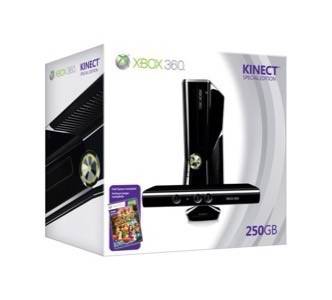
Good news for Holiday shoppers — Microsoft’s Xbox game console will continue to appear on store shelves.
Judge James Robart, a federal judge based in Seattle, ruled (PDF) late last week that Microsoft owes Motorola some sort of royalty for the patents it owns covering 802.11 Wi-Fi technology and H.264 video codecs, but that those patent royalties would be fair and reasonable, and up to the court to decide. In no way, the court ruled, does Motorola have the right to ban the Xbox from being sold.
Taken by itself, the Microsoft-Motorola suit is tangled enough, stretching back to October 2010, when Motorola sent Microsoft a letter offering to license the patents it owned, which were part of the 802.11 Wi-Fi technology. The court had found that the terms Motorola offered, however, were excessive: 2.25% of the price of the end product, plus all of the 802.11 patents that Microsoft itself owned. Put another way, Microsoft’s only real product that incorporates an 802.11 Wi-Fi controller is an Xbox 360. One of the cheapest models is the Xbox 360 with an included 4GB of storage, which retails for $199.99; at that royalty rate, Motorola would be owed about $4.50 for each of those Xbox models Microsoft sold.
The Motorola-Microsoft litigation has also sucked in a separate dispute, involving the H.264 video patents that Microsoft incorporated into Windows 7. (You might know H.264 as MPEG-4, one of the more popular video codecs, used today by Blu-ray, Adobe Flash, YouTube, and Microsoft’s own Silverlight, among others.)
That royalty rate may not sound like a lot, even taking into account the razor-and-razor blades model console makers employ, where consoles are sold near or even below cost, and profits are made up via software sales, services like Xbox Live and media sales.
What is FRAND?
But the patents in question fall under the so-called FRAND category, which used to be known as RAND, or reasonable and non-discriminatory. (The term “fair” was tacked on at some point.) The logic is this: For a broadly accepted technology like Wi-Fi, contributions are made from a variety of companies. FRAND assumes that those individual technologies are themselves patented, but contributed to a “patent pool” that is legally shared among the participants.
Companies may have to take a license to access FRAND technology, but the idea is to facilitate wide adoption by keeping royalties low. A company with a proprietary technology can charge higher royalties, but also risks alienating customers. A good example of this is Apple’s Lightning connector, which replaced the ubiquitous 30-pin connector used by its previous products. So far, Apple has struggled to find third-party products, such as hard drives, to adopt the new connector.
FRAND issues have come up in other cases — involving Motorola, not surprisingly. In November, a judge dismissed a case between Apple and Motorola Mobility that also covered Wi-Fi and video-streaming patents. Motorola had also attempted to set royalty rates at 2.25%, and, like Judge Robard, Judge Barbara B. Crabb in a Wisconsin federal court also ruled that those FRAND terms weren’t fair at all. The problem, unfortunately, was that Apple itself apparently overstepped its bounds, sniffing that it wouldn’t be bound by the court’s ruling if Apple itself decided that the royalty rate wasn’t high enough.
“… Apple states that it will not commit to be bound by any FRAND rate determined by the court and will not agree to accept any license from Motorola unless the court sets a rate of $1 or less for each Apple phone … ,” Judge Crabb wrote, as reported by Groklaw. “In other words, if Apple is unsatisfied with the rate chosen by the court, it ‘reserves the right to refuse and proceed to further infringement litigation.’ “
Which, as every parent knows, is the legal equivalent of hearing “You’re not the boss of me!” The court’s response — like that of many parents, was to take away the child’s privileges.
Putting “Fair Back Into FRAND
In the Microsoft case, Judge Robard’s ruling states that when Motorola offered to provide its 802.11 patents to Microsoft under RAND terms, Motorola was legally obligated to follow through — and at fairer terms than originally offered. Over the past few months, Motorola has attempted to wriggle free; it argued, for example, that Microsoft’s rejection of its offer also freed Motorola of its obligations to provide Microsoft a license at all. The crux of the matter is that Motorola owes Microsoft a patent license, at FRAND terms that haven’t yet been decided. The court is working on this, and will reportedly issue its ruling for the royalty rate early next year.
The other major complication to cases like these are foreign rulings, especially from Germany, which has become a power player of sorts in establishing international injunctions. Judge Robard had previously blocked Motorola from enforcing any injunction the German court granted; now, given that he had already ordered Motorola to sign a FRAND license with Microsoft, he lifted the ban — essentially, the order made it a moot point.
Patent litigation now seems to be an essential aspect of modern technology — an arms race where the company with the biggest arsenal of patents wins. What Judge Robard and Judge Crabb are doing, thank goodness, is forcefully negotiating some sort of detente.

















